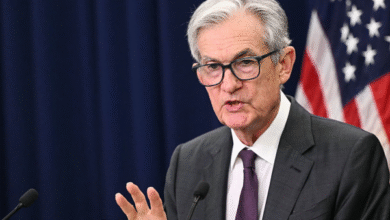Crypto Trading Takes Center Stage with CFTC’s New Initiative

Crypto trading is rapidly evolving as a pivotal element of modern financial ecosystems, drawing increasing attention from regulators like the CFTC. Amid rising interest in digital assets, the CFTC’s initiatives focus on enhancing the infrastructure of a regulated crypto market to ensure its stability and security. By launching new measures to bolster crypto market oversight, the agency seeks to facilitate greater access to digital asset trading for both retail and institutional investors. The momentum generated by these CFTC initiatives highlights the federal commitment to maintaining the U.S. as a leader in the global digital asset arena. As governmental frameworks align with market advancements, participants are encouraged to engage with ongoing discussions that shape the future of crypto trading.
In recent years, the landscape of digital currency exchange has gained substantial traction, prompting discussions on the regulation of these emerging assets. Terms such as cryptocurrency marketplace operating within a framework of legal governance are now becoming commonplace. Regulatory bodies, including the CFTC, are actively exploring how to oversee these financial innovations in order to ensure consumer protection and fair trading practices. Enhanced market structure for trading these digital currencies paves the way for a robust financial ecosystem bolstered by transparency and accountability. As stakeholders contribute to shaping policies, the focus intensifies on leveraging opportunities within a regulated cryptocurrency environment.
CFTC Initiatives to Enhance Digital Asset Market Access
The CFTC is rolling out a series of initiatives aimed at transforming the landscape of digital asset trading in the U.S. One of the key facets of this effort is the recent launch of the Crypto Sprint initiative, which seeks to broaden market access and streamline regulated crypto trades. This represents a significant shift towards accommodating the evolving needs of market participants while ensuring that trading frameworks remain robust and protective of investors. By directly addressing recommendations from the President’s Working Group, the CFTC is validating its commitment to fostering a regulated crypto market that aligns with national interests.
In light of these initiatives, the CFTC emphasizes the importance of stakeholder engagement, highlighting that feedback from market actors will be instrumental in shaping future policies. Acting Chairman Caroline D. Pham’s proactive approach is indicative of a regulatory framework that values input and collaboration. It’s a critical time for the CFTC as it seeks to address potential challenges around the oversight of margin trading and leveraged products within the crypto space. By prioritizing these discussions, the CFTC aims to lay down the foundation for a highly efficient and secure regulated environment for digital asset trading.
The Importance of Regulated Crypto Trading
As the cryptocurrency market matures, the role of regulation becomes increasingly important. Regulated crypto trading not only provides greater security for investors but also fosters a level of trust that is often lacking in unregulated environments. The CFTC’s initiatives are designed to instill confidence in market players, ensuring that trading activities comply with established standards. This focus on regulation is crucial in bolstering investor sentiment and promoting wider adoption of digital assets as legitimate financial instruments.
Moreover, as the U.S. aims to solidify its leadership in the global crypto market, coherent regulatory measures help to create a stable framework where digital asset trading can thrive. By implementing critical oversight mechanisms, the CFTC ensures that innovative practices are supported within a regulated ecosystem, balancing the desire for rapid advancements with the necessity of protective measures for market participants. This dual approach paves the way for sustainable growth and development in the crypto sector.
Challenges in Crypto Market Oversight
While the CFTC’s push for enhanced market access is promising, it is not without challenges. Critics argue that regulatory overreach could stifle innovation, deterring venture capital and blockchain startups that are essential to the crypto industry’s evolution. Additionally, there are concerns regarding the practical implementation of oversight strategies, especially concerning complex financial instruments such as leveraged trading. The CFTC must tread carefully to ensure that regulations do not inadvertently create barriers to entry for smaller players and innovators.
Adapting existing regulations to fit the unique characteristics of digital assets presents significant hurdles. The rapidly changing landscape of technology and user behavior requires a flexible and adaptive regulatory approach. As the CFTC collaborates with other regulatory bodies, such as the SEC, it must balance its regulatory ambitions with the need to remain conducive to market dynamics. Failure to do so could lead to a fragmented regulatory environment that undermines the very objectives the CFTC aims to achieve in fostering a secure and regulated crypto trading landscape.
Feedback Mechanisms and Stakeholder Engagement in Crypto
As part of its commitment to transparency and inclusivity, the CFTC has established feedback mechanisms that encourage stakeholder participation in the regulatory process. By inviting the public to share their insights and recommendations until October 2025, the CFTC is taking a significant step toward democratizing its approach to regulatory development. This engagement not only helps the agency gather valuable perspectives but also empowers market participants to play an active role in shaping the future of digital asset policies.
Such initiatives are crucial in a space as dynamic as the crypto market, where the voices of innovators, traders, and advocates can provide guidance on best practices and necessary safeguards. The CFTC’s willingness to publish submissions ensures accountability and fosters a culture of continuous improvement, as stakeholders can track how their input has influenced decision-making processes. Ultimately, this type of engagement reinforces the CFTC’s aim to build a cohesive and informed regulatory framework that can adapt to the rapidly evolving landscape of digital asset trading.
The Future of Digital Asset Trading in the U.S.
The future of digital asset trading in the U.S. looks promising as the CFTC’s initiatives aim to pave the way for innovative financial solutions. With the federal government prioritizing regulated trading operations, market participants are poised to benefit from increased accessibility and security within the digital asset sector. This shift signifies a potential transformative moment where established norms of trading meld with cutting-edge technological advances, ultimately enhancing the overall trading experience for users across the board.
Moreover, as the regulatory landscape evolves, the CFTC’s collaborations with agencies like the SEC will likely create a more synchronized approach to governance and compliance in the crypto market. This coordinated effort will not only streamline oversight but also provide a stable environment for investment and innovation. With the groundwork being laid for a regulated crypto market, the U.S. may emerge as a leader in the digital asset domain, encouraging other nations to follow suit in developing robust frameworks for their own markets.
Impact of CFTC’s Initiatives on Market Sentiment
The CFTC’s recent initiatives are expected to have a positive impact on market sentiment as they signal a shift toward increased regulatory clarity in the cryptocurrency sector. Investors often react favorably to clear guidelines that mitigate risks associated with unregulated markets, and this transparency is crucial for attracting institutional investment. With the CFTC championing digital asset trading as a core focus, market participants are likely to feel more comfortable engaging with digital currencies and related trading activities.
Furthermore, by addressing concerns regarding market volatility and investor protection, the CFTC enhances confidence in crypto trading. This not only encourages existing investors to continue participating but also invites new players into the market—both individuals and institutions looking to capitalize on the growing demand for digital assets. As confidence builds, the potential for broader acceptance and adoption of cryptocurrencies as a legitimate asset class increases, contributing to the overall maturation of the digital asset landscape.
Collaboration Between CFTC and SEC for Crypto Regulation
The collaborative efforts between the CFTC and SEC represent a significant step towards comprehensive oversight of the digital asset landscape. By working together, these regulatory bodies can harmonize their approaches, ensure consistent enforcement of rules, and address different aspects of the crypto market effectively. This cooperation is essential for navigating the complexities that digital assets present, as they often straddle the lines between commodities and securities, necessitating input from both regulatory institutions.
By aligning their priorities, the CFTC and SEC can provide a clear and unified regulatory framework that reassures market participants while fostering a climate of innovation. Stakeholders will benefit from an atmosphere where compliance requirements are predictable and transparent, allowing them to make informed decisions about investing and trading in digital assets. This strategic partnership reinforces the U.S. government’s commitment to fostering a vibrant and secure regulated crypto market that can thrive on the global stage.
Long-term Vision for a Secure Digital Asset Ecosystem
The long-term vision for a secure digital asset ecosystem hinges on the successful implementation of the CFTC’s initiatives and the regulatory landscape being cultivated. A well-regulated crypto market will not only protect investors but also ensure that innovation is encouraged within a framework of responsibility. As market participants, innovators, and regulators come together to establish best practices, the foundation for a secure trading environment will be laid, conducive to sustainable growth in the digital asset space.
Moreover, this vision includes not just immediate regulatory measures but also a commitment to ongoing evaluation and adaptation as the market evolves. As technological advancements continue to reshape the cryptocurrency landscape, regulators must remain agile and responsive to new developments. This proactive stance will be crucial in achieving a stable and resilient market that can weather future challenges while providing opportunities for ongoing innovation and investment within the realm of digital assets.
Cryptocurrency’s Role in the Financial System
Cryptocurrencies are increasingly being recognized for their potential to play a significant role in the financial system. The CFTC’s initiatives aim to integrate cryptocurrencies into the mainstream financial framework, allowing them to coexist alongside traditional financial instruments. This integration is vital for building confidence among users and investors, demonstrating that digital assets can operate within a regulated environment. As cryptocurrencies gain acceptance, they may become an essential tool for diversifying portfolios and enhancing financial inclusivity.
The evolving legal recognition of cryptocurrencies is also pivotal. As regulatory bodies like the CFTC lay down fundamental guidelines, it creates a scenario where cryptocurrencies can be utilized for various financial services. This may include lending, payments, and remittances, offering users more options and flexibility in managing their assets. With ongoing regulatory scrutiny and an eye towards investor protection, the notion of cryptocurrencies as a mainstream financial asset continues to gain traction, reshaping the landscape of modern finance in meaningful ways.
Frequently Asked Questions
What initiatives is the CFTC undertaking to improve crypto trading regulation?
The U.S. Commodity Futures Trading Commission (CFTC) is launching initiatives like the Crypto Sprint to enhance oversight of the regulated crypto market. This includes engaging stakeholders and addressing recommendations from the President’s Working Group on Digital Asset Markets to facilitate faster access to digital asset trading.
How does the CFTC’s oversight affect digital asset trading?
CFTC market oversight aims to create a safer and more structured environment for digital asset trading. By regulating the crypto market, the CFTC helps prevent fraud, improve market integrity, and promote investor confidence in the evolving landscape of digital assets.
What role does the CFTC play in expanding access to the crypto market?
The CFTC is crucial in expanding access to the crypto market through initiatives that streamline the process for regulated crypto trading. This includes addressing market standards and regulatory frameworks that encourage innovation while maintaining oversight on digital asset trading.
Why is regulated crypto trading a priority for the U.S. government?
Regulated crypto trading is a priority for the U.S. government as it aligns with broader financial strategy goals. By ensuring rapid and safe access to digital assets, the government aims to promote innovation and maintain U.S. leadership in global digital asset markets.
What is the significance of stakeholder engagement in the CFTC’s crypto initiatives?
Stakeholder engagement is vital in the CFTC’s crypto initiatives, as it allows the commission to gather diverse market insights and feedback. This collaborative approach helps shape effective regulatory measures for digital asset trading while fostering trust among participants in the regulated crypto market.
How will the CFTC’s initiatives impact the future of crypto trading?
The CFTC’s initiatives, especially the expanding regulatory framework for digital asset trading, are likely to lead to increased participation in the crypto market, enhanced market stability, and potentially more innovative financial products that incorporate digital assets.
What should market participants know about the CFTC’s feedback process for crypto regulation?
Market participants should be aware that the CFTC solicits public feedback on its initiatives, with submissions made available on its website. Engaging in this process allows participants to influence the development of standards and regulations that govern digital asset trading.
| Key Points | Details |
|---|---|
| CFTC’s New Initiative | CFTC launches its next phase to expand digital asset market access. |
| Focus on Spot Trading | The Crypto Sprint initiative initially focused on spot crypto trading. |
| Engagement with Stakeholders | Acting Chairman Pham will engage with stakeholders for feedback on recommendations. |
| Regulated Trading is a Priority | CFTC aims to ensure rapid access to regulated crypto trading as a federal priority. |
| Collaboration with SEC | CFTC will work with the SEC to structure oversight of leveraged retail trading. |
| Public Feedback Invited | Public submissions on the initiative will be accepted until Oct. 20, 2025. |
| Potential Challenges | Critics express concerns about regulatory overreach, while supporters see potential market leadership. |
Summary
Crypto trading is becoming increasingly prioritized as the U.S. government, through the CFTC, gears up to expand its oversight of digital asset markets. With initiatives aimed at facilitating access to regulated trading, the U.S. is positioning itself as a leader in this growing sector. Stakeholder engagement and public feedback are being actively sought to shape the future of crypto trading, ensuring that innovation aligns with regulatory standards.




